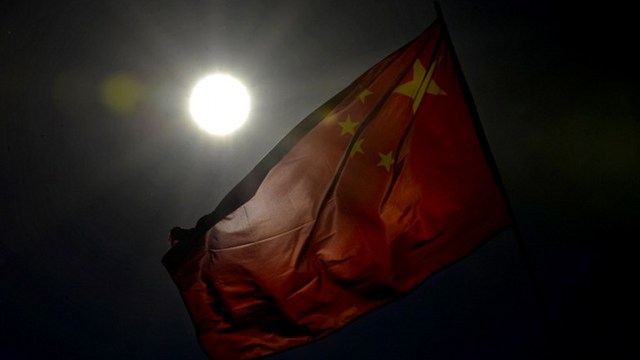SUMMARY
This is AI generated summarization, which may have errors. For context, always refer to the full article.

SHANGHAI, China – China’s biggest overseas takeover, the $15 billion purchase of Canada’s Nexen, is a huge step in Beijing’s push for foreign acquisitions — but its drive to secure resources and markets is causing unease.
Ottawa last week approved Chinese state-owned energy giant CNOOC’s purchase of the oil and gas company, despite political opposition in Canada.
The victory is particularly sweet for CNOOC after it was forced to withdraw its bid for another North American firm, US oil and gas producer Unocal, seven years ago following an outcry in Washington.
For the Chinese government, the deal is an affirmation of its decade-old drive to encourage companies to go abroad to build international players and secure supplies of energy and raw materials to keep the economy humming.
“It’s a milestone to show Chinese companies are getting more sophisticated when it comes to overseas acquisitions,” said Edward Tse, chairman for Greater China for management consulting firm Booz & Company.
“This case will help the Chinese go to other countries, in particular developed countries.”
Chinese firms have become more active in mergers and acquisitions since the global financial crisis that began in 2008, as economic distress has thrown up bargains around the world.
Between 2005 and 2011, the number of China’s overseas acquisitions tripled to 177 and jumped five-fold by value to $63 billion, according to law firm Squire Sanders and intelligence service Mergermarket.
But Chinese state media used the Nexen success to blast unspecified “Western powers” for alleged unfairness and protectionism.
“Chinese investors have been discredited by some Western governments and media as a group of cash-rich predators and spies,” the official Xinhua news agency said in a commentary.
“Western powers that harbour China-investment phobias should first drop their prejudice towards Chinese companies and let their entrepreneurs, not politicians, decide the business deals.”
A US congressional committee said in October that Chinese telecom manufacturers Huawei and ZTE should be excluded from government contracts because their equipment could be used to spy.
CNOOC offered a premium for Calgary-based Nexen, pledged to keep management in place and vowed transparency — helped by a possible listing on the Toronto stock exchange — to smooth the way for the acquisition.
Fei Kwok, a partner for law firm Norton Rose in Shanghai, said the deal could offer psychological support to other Chinese companies planning to invest abroad in the footsteps of the state giant.
“It does help psychologically for some of the smaller-sized Chinese companies, primarily in relation to private Chinese companies, who are waiting for the result of this CNOOC-Nexen deal,” she said.
But academics said more was at work than commerce, as China seeks growing stature and competes with other countries for resources.
“It’s tied to the Communist Party’s national objectives, which increasingly include projecting economic power abroad,” said Joshua Eisenman, senior fellow for China studies at the American Foreign Policy Council.
“Chinese state-run companies have been expanding throughout the developing world and there’s been push back in many places,” said Eisenman, co-author of “China and Africa: A Century of Engagement”.
In Myanmar, opposition leader Aung San Suu Kyi will lead a probe into a crackdown on a protest against a Chinese-backed copper mine which will also assess the future of the contested project.
And in copper-rich Zambia, Chinese companies active in the mining sector have seen riots over wage disputes but deny accusations of labour rights violations. – Agence France-Presse
Add a comment
How does this make you feel?
There are no comments yet. Add your comment to start the conversation.